West Africa tour, Bissau to Cotonou
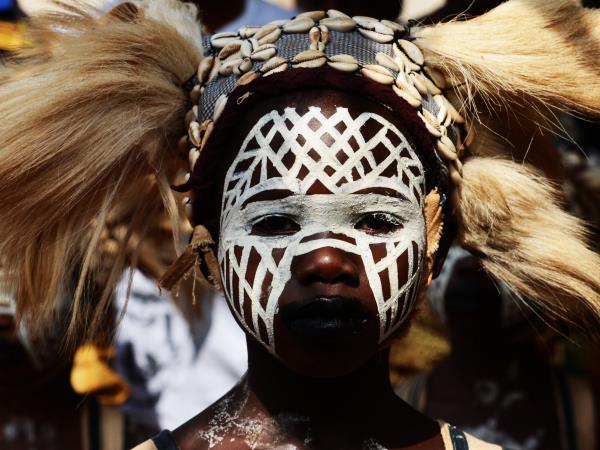
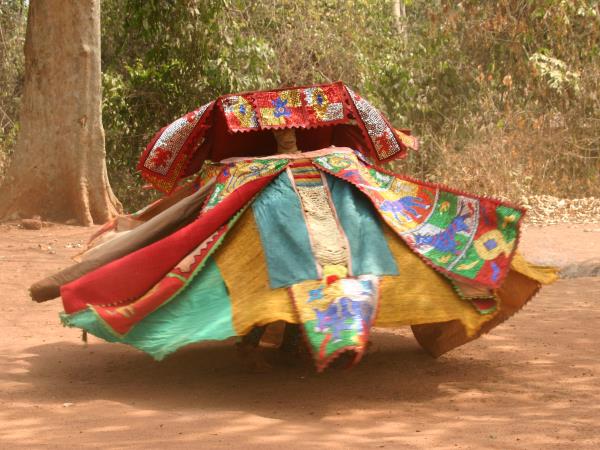
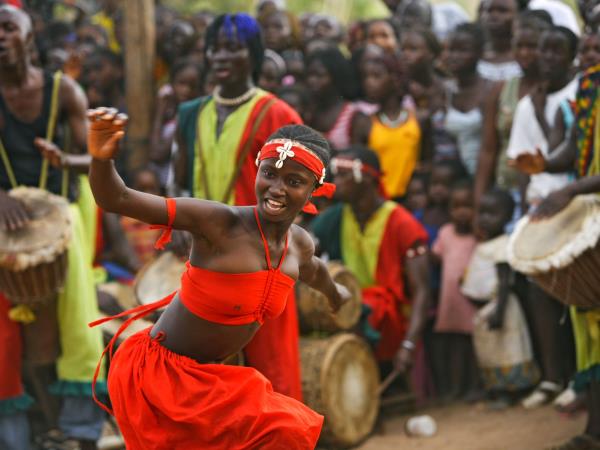
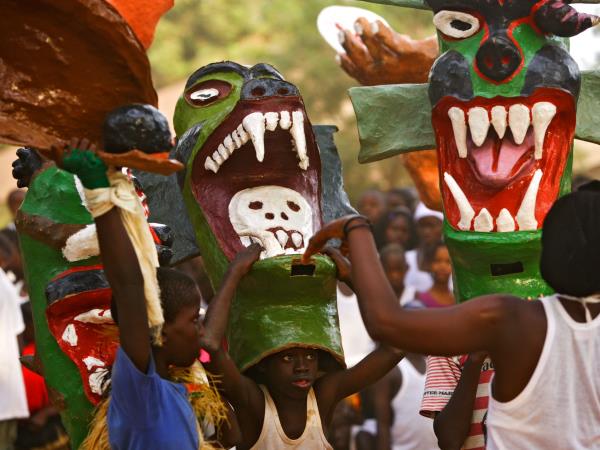
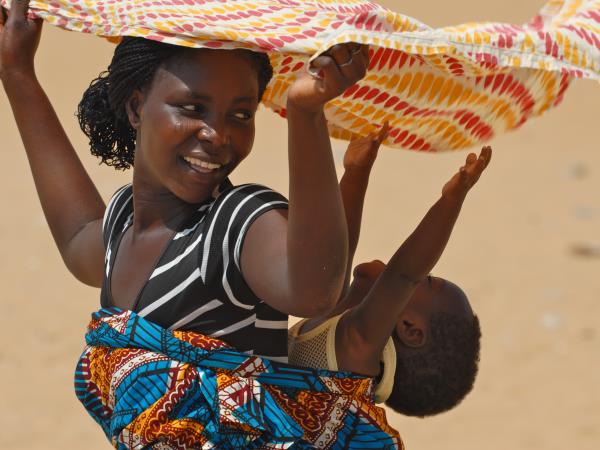
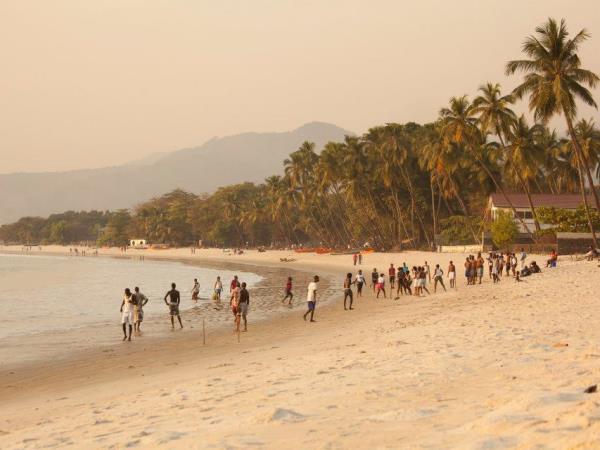
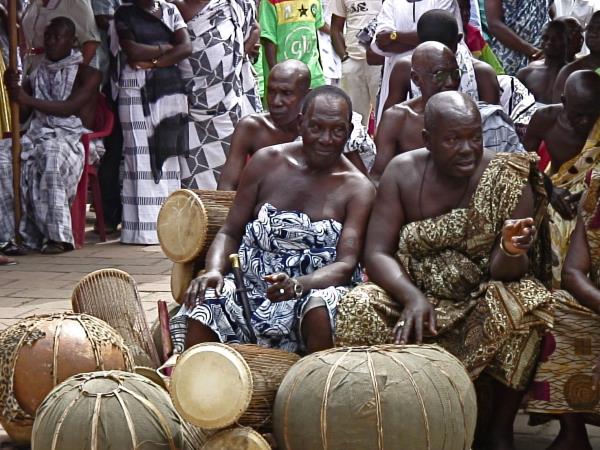
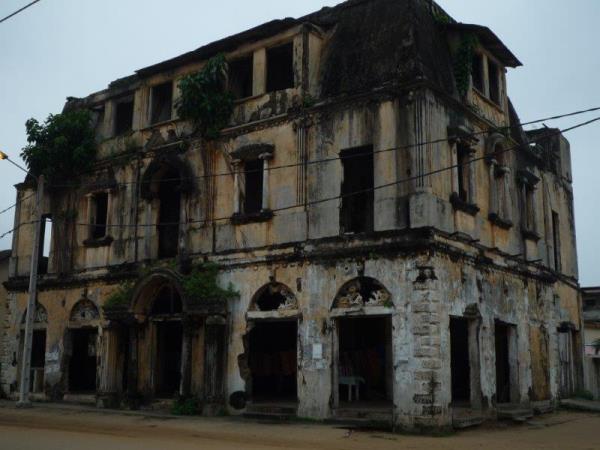
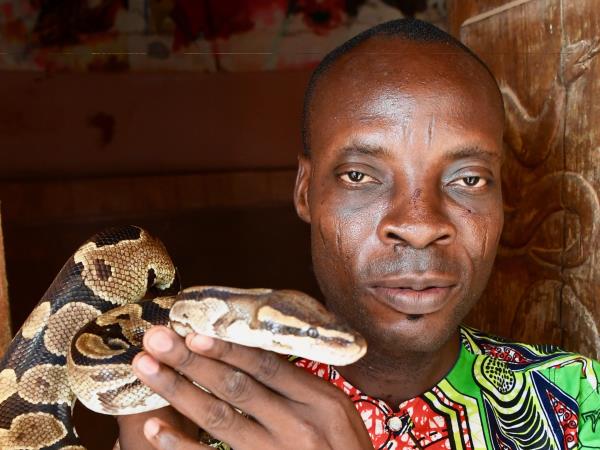
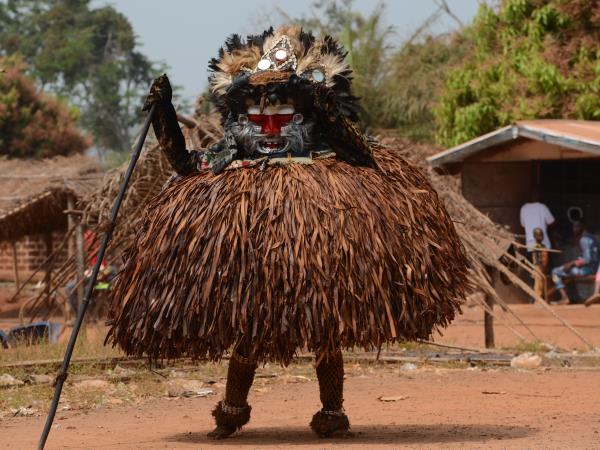
Duration
4 Weeks
Countries
Benin, Guinea Bissau, Ivory Coast, Liberia, Sierra Leone, Togo
Type
Small group
Group size
Up to 16 people
Reviews
Description of West Africa tour, Bissau to Cotonou
Check dates, prices & availability
Travel guides
Travelling West Africa is a balancing act – a mix of culture, food, nature and a past best told by the region’s own storytellers. Festivals are all-si...
A trip to Africa is always going to be exciting but imagine clambering aboard a purpose built truck and getting to cross borders, camp out overnight a...
Reviews
1 Reviews of West Africa tour, Bissau to Cotonou
3 out of 5 stars
Reviewed on 17 Jan 2024 by Rick Parisi
1. What was the most memorable or exciting part of your holiday?
West Africa is very different from the other parts of Africa that I have visited.
It was very interesting to see this completely different culture.
Most memorable, but not in a good way - definitely the hotels which which were by far the most awful that I have ever stayed in.
2. What tips would you give other travellers booking this holiday?
Make sure that you get a full and un-sanitised itinerary.
Call the agent and get a full run-down of what to expect.
3. Did you feel that your holiday benefited local people, reduced environmental impacts or supported conservation?
I did not see any evidence of this.
4. Finally, how would you rate your holiday overall?
It seems that people that booked directly with Transafrica had a more detailed itinerary than the one that I had from Native Eye.
There was no mention of staying in tents on my itinerary and the trip was quite a bit more difficult for me than I had expected.
Armstrong, the tour leader was very good, but needed to take more control at times in situations where certain individuals were trying to manipulate him.
A example was certain people were always grabbing the best seats in the Land Cruisers.
The speedboat trip to Bijou Island was awful.
I had one of the front seats and although I was clearly uncomfortable, the driver did not slow down.
As a result, I am now suffering with neck pain which I hope is not permanent.
Read the operator's response here:
Hi Rick,
Thanks for taking the time to submit a review. We’re really glad you enjoyed the trip and found the cultures of the region interesting.
Regarding the hotels, these are unfortunately not comparable to the accommodations available in the more more popular tourist destinations in east and southern Africa. West Africa is underdeveloped and in the most remote parts of this trip there is little experience of tourism. This is reflected in the infrastructure and maintenance, with hotels not always being of as high a standard as we would like. We opt for the best possible option in each location -
outside of capital cities where we tend to use 4* instead of 5* - in terms of reliability, comfort, cleanliness, and location, but this still doesn’t mean a 3 or 4* hotel in West Africa can be compared to a 3 or 4* hotel here in the west, or in other parts of the continent. We do try and prepare our travellers for this in the information we send out and do mention that local conditions can sometimes be difficult and different to what we may be used to, and we find that the majority of our travellers are actually pleasantly surprised that hotels are better than they expected - although expectations do of course depend on individual travellers and what they may have experienced in other parts of the world.
We’re really sorry that you found the accommodations to be below the standard you expected and we hope that this didn’t impact too heavily on your overall enjoyment of the tour and the experiences that come with travelling through such an interesting part of Africa. If there are any specifics we should be aware of, please don’t hesitate to get in touch with us directly, as we really value our travellers’ feedback and will always make improvements where possible.
The itinerary and accompanying information that we send out includes the most useful and relevant points, covering everything we believe our travellers need to and would want to know. If we included every last detail that we receive from our local teams in destination, the itinerary can become unwieldy and overcomplicated, and we have found this to be inappropriate in the past as we don’t want to overwhelm our travellers with pages and pages of minute detail and sometimes undecipherable information from our local teams. However, we do appreciate your comment about the tents and we should have included this in the trip information. Whilst the camp is a fixed tented camp, and doesn’t require you to camp in the traditional sense, we do understand that it would have been useful to have been provided with more detail about this and we will be sure to include this for future groups. We appreciate you bringing this to our attention, thank you.
We’re sorry you found the itinerary to be more difficult than expected and hope you were able to manage. We mention in the trip documentation that you do need to have a reasonable level of fitness to join this trip, and that you should be prepared for exploring on foot. We try to be as explicit as possible about the challenges that travel in this part of the world entails and have included a paragraph on our website and in the tour documentation which tries to manage expectations before a traveller books, stating:
This is a pioneering trip through one of the least developed parts of the world and so you must be prepared for flexibility and changes to the itinerary if necessary. We most definitely do not recommend this trip if you like rigid plans, 4 star hotels, good roads and well defined ‘tourist sites’ – this is a very adventurous trip through a remote part of the continent, where infrastructure is not great, things change frequently and you can expect a certain amount of
discomfort at times.
We also mention that travel in this part of the world can be rather tiring due to the poorly maintained roads in this part of the world, and the sometimes long distances between key sites. I will have a look at our country notes and website to see if there’s anything else we could possibly add to better prepare our travellers for the trip, and to help them when making a decision on whether the trip is right for them.
Regarding the speedboat trip to the Bijagos Islands, we regularly run this - with some of our team here in the UK having also made this journey - and haven’t experienced any issues regarding the driving speed before. We’re sorry to hear you were uncomfortable and will certainly talk to our local team about this, mentioning that the drivers need to maintain a comfortable speed and be more considerate of the people on board.
Armstrong is a guide that we regularly use for our trips in this region, as he’s very experienced and always receives good feedback. We’re so pleased you found this to be the case also, and will be sure to pass on your comments. Regarding his management of the group, this is something that our guides cover in their training and which they have shown to improve in over time. We sometimes find that cultural attitudes in this part of the world mean that local
guides sometimes find it slightly difficult to take a position of authority when leading a group of western tourists, especially a more mature group of tourists, as people in this region are brought up to respect their elders. We will continue to work with our guides on this and do understand that it’s important for a guide to have the confidence to handle a variety of different situations that may arise within a group.
It’s a little difficult to focus on conservation and environmental impact - as we do on some of our other tours - in a region that is so far behind in this respect. Environmental thinking is not at the forefront of everyday life here and whilst we ask that our groups don’t contribute to these issues, and travel responsibly, you will have likely come face-to-face with the realities of travelling in the region, such as a lot of litter in places. We do what we can in terms of benefitting the local people and economy, though, by employing local guides, local transport providers, and by using small locally-owned accommodations where possible. Not providing a western guide to accompany our groups keeps carbon emissions down and means you’ll always be provided with first-hand knowledge by a local guide that knows the destination/s inside out.
We want to assure you that we have taken all of your points on board - both positive and constructive - and will make improvements where possible for future groups. We really do appreciate the time you have taken to provide feedback about the trip and hope you have taken away some special lasting memories of this very special part of Africa.
Thanks for taking the time to submit a review. We’re really glad you enjoyed the trip and found the cultures of the region interesting.
Regarding the hotels, these are unfortunately not comparable to the accommodations available in the more more popular tourist destinations in east and southern Africa. West Africa is underdeveloped and in the most remote parts of this trip there is little experience of tourism. This is reflected in the infrastructure and maintenance, with hotels not always being of as high a standard as we would like. We opt for the best possible option in each location -
outside of capital cities where we tend to use 4* instead of 5* - in terms of reliability, comfort, cleanliness, and location, but this still doesn’t mean a 3 or 4* hotel in West Africa can be compared to a 3 or 4* hotel here in the west, or in other parts of the continent. We do try and prepare our travellers for this in the information we send out and do mention that local conditions can sometimes be difficult and different to what we may be used to, and we find that the majority of our travellers are actually pleasantly surprised that hotels are better than they expected - although expectations do of course depend on individual travellers and what they may have experienced in other parts of the world.
We’re really sorry that you found the accommodations to be below the standard you expected and we hope that this didn’t impact too heavily on your overall enjoyment of the tour and the experiences that come with travelling through such an interesting part of Africa. If there are any specifics we should be aware of, please don’t hesitate to get in touch with us directly, as we really value our travellers’ feedback and will always make improvements where possible.
The itinerary and accompanying information that we send out includes the most useful and relevant points, covering everything we believe our travellers need to and would want to know. If we included every last detail that we receive from our local teams in destination, the itinerary can become unwieldy and overcomplicated, and we have found this to be inappropriate in the past as we don’t want to overwhelm our travellers with pages and pages of minute detail and sometimes undecipherable information from our local teams. However, we do appreciate your comment about the tents and we should have included this in the trip information. Whilst the camp is a fixed tented camp, and doesn’t require you to camp in the traditional sense, we do understand that it would have been useful to have been provided with more detail about this and we will be sure to include this for future groups. We appreciate you bringing this to our attention, thank you.
We’re sorry you found the itinerary to be more difficult than expected and hope you were able to manage. We mention in the trip documentation that you do need to have a reasonable level of fitness to join this trip, and that you should be prepared for exploring on foot. We try to be as explicit as possible about the challenges that travel in this part of the world entails and have included a paragraph on our website and in the tour documentation which tries to manage expectations before a traveller books, stating:
This is a pioneering trip through one of the least developed parts of the world and so you must be prepared for flexibility and changes to the itinerary if necessary. We most definitely do not recommend this trip if you like rigid plans, 4 star hotels, good roads and well defined ‘tourist sites’ – this is a very adventurous trip through a remote part of the continent, where infrastructure is not great, things change frequently and you can expect a certain amount of
discomfort at times.
We also mention that travel in this part of the world can be rather tiring due to the poorly maintained roads in this part of the world, and the sometimes long distances between key sites. I will have a look at our country notes and website to see if there’s anything else we could possibly add to better prepare our travellers for the trip, and to help them when making a decision on whether the trip is right for them.
Regarding the speedboat trip to the Bijagos Islands, we regularly run this - with some of our team here in the UK having also made this journey - and haven’t experienced any issues regarding the driving speed before. We’re sorry to hear you were uncomfortable and will certainly talk to our local team about this, mentioning that the drivers need to maintain a comfortable speed and be more considerate of the people on board.
Armstrong is a guide that we regularly use for our trips in this region, as he’s very experienced and always receives good feedback. We’re so pleased you found this to be the case also, and will be sure to pass on your comments. Regarding his management of the group, this is something that our guides cover in their training and which they have shown to improve in over time. We sometimes find that cultural attitudes in this part of the world mean that local
guides sometimes find it slightly difficult to take a position of authority when leading a group of western tourists, especially a more mature group of tourists, as people in this region are brought up to respect their elders. We will continue to work with our guides on this and do understand that it’s important for a guide to have the confidence to handle a variety of different situations that may arise within a group.
It’s a little difficult to focus on conservation and environmental impact - as we do on some of our other tours - in a region that is so far behind in this respect. Environmental thinking is not at the forefront of everyday life here and whilst we ask that our groups don’t contribute to these issues, and travel responsibly, you will have likely come face-to-face with the realities of travelling in the region, such as a lot of litter in places. We do what we can in terms of benefitting the local people and economy, though, by employing local guides, local transport providers, and by using small locally-owned accommodations where possible. Not providing a western guide to accompany our groups keeps carbon emissions down and means you’ll always be provided with first-hand knowledge by a local guide that knows the destination/s inside out.
We want to assure you that we have taken all of your points on board - both positive and constructive - and will make improvements where possible for future groups. We really do appreciate the time you have taken to provide feedback about the trip and hope you have taken away some special lasting memories of this very special part of Africa.
Responsible Travel
As the pioneers of responsible tourism, we've screened this (and every) holiday so that you can travel knowing we've worked to maximise the benefits of your holiday to local people and places, and minimise any negative impacts.
Planet
This tour travels through some very remote regions, some of which have barely been touched by the presence of humans, and we strongly believe in maintaining their pristine nature. We strive to ensure that we leave these areas as we find them and our team have been trained in strict no litter policies, meaning that we take all refuse to either be recycled or properly disposed of in nearby towns.Similarly, in conjunction with our local team we work with hotels and guesthouses to implement best practices when it comes to environmental matters – again in some places this is far behind what we might be used to in other parts of the world. This includes basic things like not replacing towels each day, as well as saving electricity and turning lights off.
Our travellers are specifically briefed on not to buy souvenirs made from endangered species – people in remote parts of West Africa do not always have the same respect towards wildlife as most travellers will have, and can sometimes offer such things for sale. This also extends to bushmeat – it is quite common to find antelope, porcupine or even monkey served in restaurants, and we specifically advise our travellers against contributing to the depletion of local populations.
People
As with many of the trips that we offer, this tour has a strong focus on local culture and different ethnic groups. Where possible we try to ensure that local people benefit from our presence.We spend time with some traditional ethnic groups on this trip, groups who rarely see tourists. We have a special responsibility to ensure that the encounters that we have are carried out in a responsible manner. We consult extensively with local tribal elders to ensure that our presence here is very much welcomed – we feel that it is very important to be seen as guests here rather than outsiders come to merely look. We are able to spend time with the communities learning about their traditions and customs.
We are careful not to disrupt the traditional way of life of the people that we meet. As a way to say thank you for allowing us to visit, we bring traditional gifts, such as sugar, tea and so on – we do not bring modern accoutrements that may change their way of life as we feel that it is important for all tribal groups that any move towards a more ‘modern’ lifestyle is made on their own terms and not imposed upon them. We give gifts to the elders of the villages who will then ensure that they are distributed appropriately, rather than just giving them to individuals, which can cause problems, jealousy and fights within small communities.
Where small local shops exist within the villages, we encourage our travellers to buy something, be it a cold drink or a snack, so that we have some economic benefit, however small. We employ local guides from the villages to show us around – not only does this give our travellers a greater insight into traditions but again it helps to put money into the local economy.
These are very traditional areas with certain codes of behaviour, and the people here are not that accustomed to outsiders. We ensure that our travellers are appropriately briefed in order so as not to offend local sensibilities. This includes photography – while we recognise that many people are incredibly photogenic it is important for us to respect their wishes should they not want to have their photo taken, and our travellers are carefully briefed upon this.
Popular similar holidays
West Africa explorer tour, Marrakech to Cotonou
From £16399 - £17699 8 weeks excluding flights
An epic journey from Morocco to the voodoo coast of Benin
Ghana, Togo and Benin holiday
From £3799 16 days excluding flights
Culture, landscapes and Ouidah Vodoun Festival
Ghana, Togo and Benin holiday, gold and magic
From £3199 - £3499 14 days excluding flights
Traditional villages and voodoo in Ghana, Togo and Benin



















